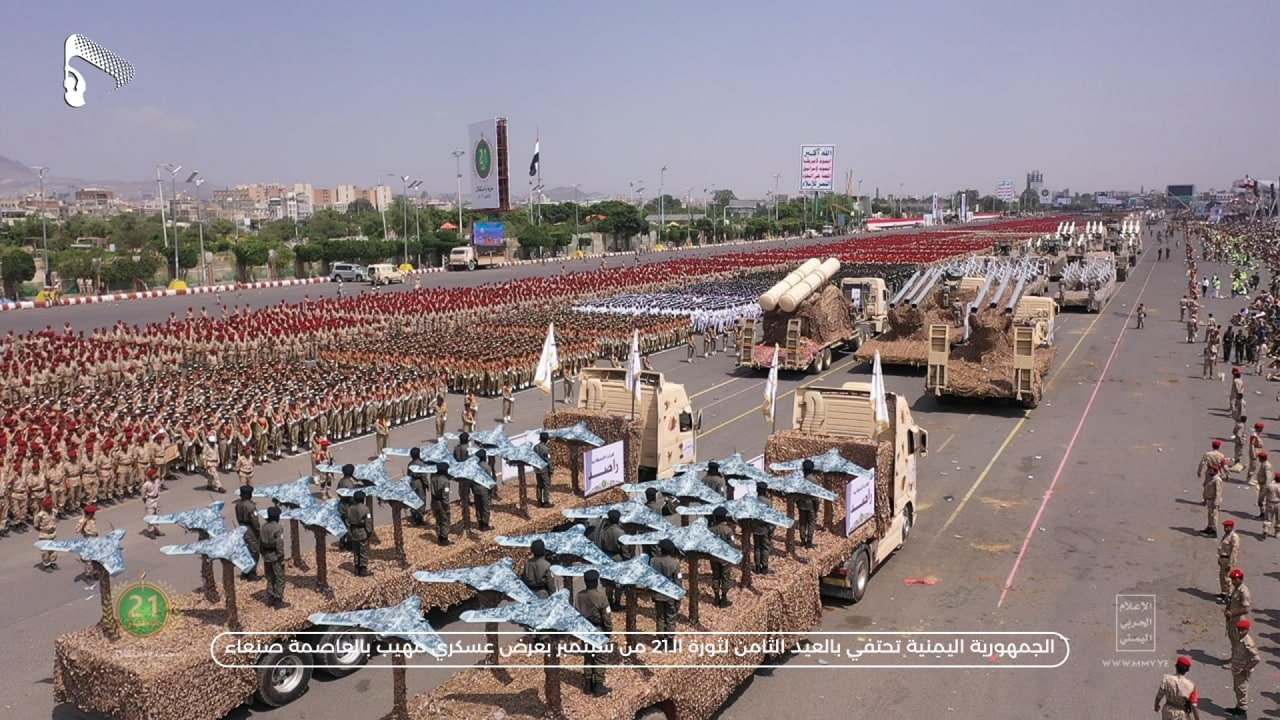In recent days, Sana'a has sent a series of warning and alert messages to the countries of the US-Saudi-UAE aggression alliance, emphasizing the impossibility of accepting the ongoing suffering of the Yemeni people and the impossibility of compromising the country's sovereignty and the rights of the Yemeni people. Sana'a also affirmed its readiness and preparedness to resume the liberation battle and adopt wide-ranging military deterrent options.
One aspect of these messages came from the President of the Supreme Political Council, Mahdi Al-Mashat, who confirmed that "America hinders any peace solutions, tries to impose its colonial agenda, and seeks alternative sources like high-interest loans, which pose long-term economic risks to Yemen." He pointed out that "the aggression coalition, led by America, is vigorously seeking to continue the aggression and tighten the siege to strangle our people and prevent the disbursement of state employee salaries."
The President added that "continuing to multiply the suffering of the Yemeni people, delaying ships in Djibouti, and legitimizing the blockade through the UN Verification and Inspection Mechanism (UNVIM) will not be acceptable," and that "the Yemeni army will protect all the wealth of the Yemeni people in every inch of Yemeni territory."
He warned the aggression countries, headed by the United States, that "the aggression, siege, and deprivation of the Yemeni people of their wealth cannot continue without consequences."
The President added: "Yemen, with its leadership, army, and people, will not make concessions or compromise its full sovereignty on land, sea, and air."
Defense Minister Major General Mohammed Nasser Al-Atifi also confirmed that "the continuation of the current situation is no longer acceptable; it only serves the enemies."
He clarified that "the truce according to the desires of the aggression countries will not remain in place" and that "the Yemeni armed forces will have a calculated move that restores balance to the region," indicating that the aggression countries will find themselves in an "open war" if they refuse the option of peace.
He added that the armed forces have "prepared the equipment" and have "what hurts the enemies."
He pointed out that the aggression coalition must "declare peace in front of everyone, according to what was proposed by the revolutionary leadership and the Supreme Political Council," or else be prepared for field surprises.
Furthermore, he explained that the military offers and maneuvers of the armed forces "are not for media consumption."
He confirmed that the armed forces would continue to prepare, and they are ready for peace as they are ready "to liberate Yemen and expel all occupying forces from Yemeni territories, whether Emirati, Saudi, or those behind them, or those fighting with them."
"We will not back down from liberating Yemen, and we will not accept a single occupier remaining on Yemeni territories," he stressed.
During an Eid visit to the soldiers of the Fourth Military Region in the fronts of Karsh, Al-Qubaytah, Damnah Khadir, and Mawiya, Major General Al-Atifi confirmed that "Yemen will remain united, and the national options in Yemeni unity are a matter where there is no room for maneuvering or bargaining."
On his part, the spokesman of the armed forces, Brigadier General Yahya Saree, confirmed that "if the invading enemy does not respond to the legitimate demands of our people, represented by ending the aggression, lifting the siege, and withdrawing the invading forces, we are ready for confrontation."
He added that the armed forces "are preparing the equipment and are fully ready to implement leadership directives and carry out naval or land operations."
These messages reinforce previous warnings and alerts directed by the revolutionary, political, and military leadership to the aggression coalition regarding the need to decisively decide on the Yemeni people's demands and end the procrastination and evasion that could lead to alternative deterrent options with regional and international impact.







